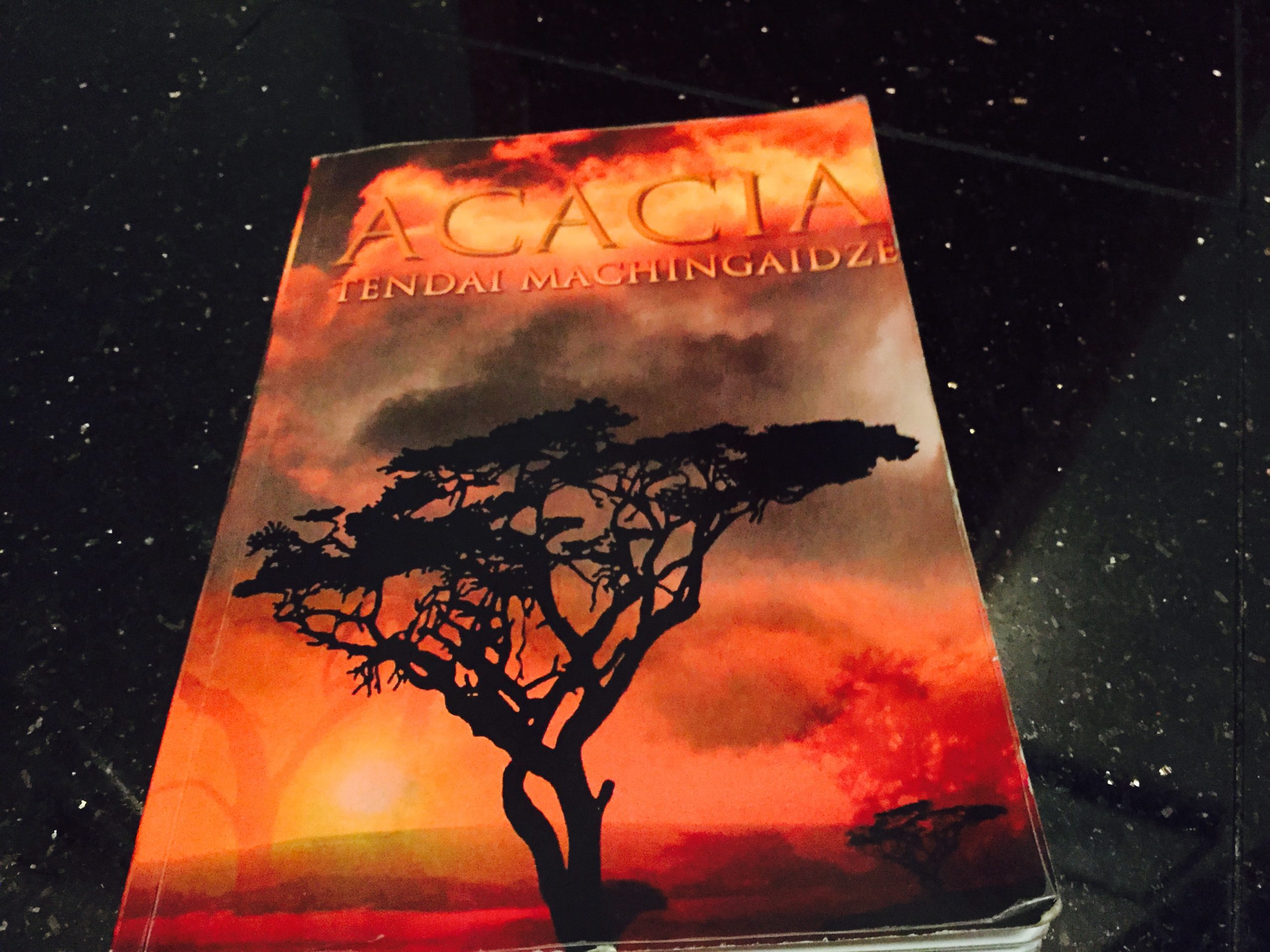
I received a copy of Tendai Machingaidze’s debut novel, Acacia, a few months ago. If you are not put off by its boring cover and can muster the energy to flip through the contents, it’s a book worth reading for many reasons.
by Bookworm
Machingaidze’s book cover is a stock image of an Acacia tree with an orange sun in the background. Not only is it cliched and commonplace but so long ago. The blog Africa is Country published a piece last year, The Dangers of a Book Cover: The Acacia Tree Meme and African Literature, which interrogated the politics of book covers and African writers. This cover bothers me so much because I always start reading from the cover and this one almost induced me into a reader’s block.
The cover aside, the book provoked many feelings and it has prompted me to reflect on something else — the concept of “chick-lit” in Zimbabwe. It’s a type of literature that I see slowly emerging and the popular blog The Small House and Violet Masilo’s African Tea Cosy are two other recent examples.
“Chick-lit” is a genre of fiction which addresses issues of modern womanhood, often humorously and lightheartedly.
The genre became popular in the late 1990s after the publication of the Bridget Jones Diaries. However, many African writers are reluctant to adopt the term “chick-lit” as they view it as a pejorative for books that are overly superficial or materialistic or lacking in seriousness.
I think differently. “Chick-lit” puts black women and their lives front and centre — focusing on their relationships, family and friends in a lighthearted and chatty manner. And the heroines are strong, confident, ambitious and know what they want.

Acacia evokes girl power. Told from the first person perspective, the book is an independent woman’s message. Acacia is raised by her mother who was a single mother who was raised by her grandmother who was also a single mother. Not that single motherhood is something to aspire for, but when it happens it can be a positive thing. These women are the quintessence of intelligence, education, and independent spirit — everything that is daunting for a Zimbabwean woman only because she is socialised to be docile and submissive.
- Chamisa under fire over US$120K donation
- Mavhunga puts DeMbare into Chibuku quarterfinals
- Pension funds bet on Cabora Bassa oilfields
- Councils defy govt fire tender directive
Keep Reading
In fact, there is something empowering about the female characters in new and old Zimbabwean literature, mostly written and told from their perspectives. Some of the strong female characters that come to mind are Tambudzai Sigauke, Zenzele and most of the female characters in Yvonne Vera’s novels.
However, Acacia is not a typical Zimbabwean girl, the kind that anchors their futures and destiny on men. She is her own person and memorably says, “I didn’t want to marry a doctor. I wanted to be a doctor.” And despite her turbulent love life, being raised by a single mom, growing up as a mixed child there is some doggedness about her.
So much happens in 157 pages that it feels almost like having a soap opera in your hand. While the story revolves around Acacia and the several men in her life, the book explores many issues simultaneously — interracial relationships that overstep the boundaries of culture and race; growing up and living in the Zimbabwean diaspora and independence.
Acacia Graeme is of mixed parentage — born of a Zimbabwean mother and a white American father. She describes herself as “the half caste child of new Africa, a daughter of two lands, yet somehow strangely homeless.” In her pursuit to become a doctor, she is also busy negotiating her identity as a woman and as a diasporan.
Machingaidze’s focus on this subject is timely and relevant. It is proof of the cosmopolitanism that accrues with moving to or between countries. We now have a growing Zimbabwean diaspora community that is siring offspring whose connection to Zimbabwe is complicated.
But for all she goes through, Acacia is living proof of her name — Acacia trees flourish when the rains are abundant. And when there is a drought, they persevere.
*Acacia was published by African Perspectives Publishing in Johannesburg.
lFeedback: [email protected]











